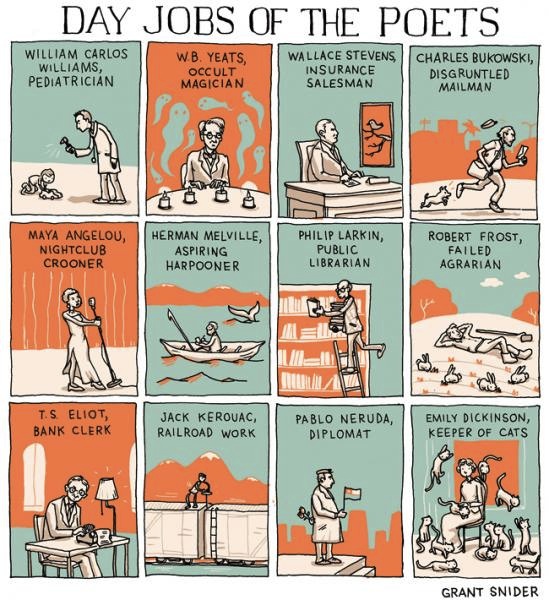"No man but a blockhead," Samuel Johnson famously observed, "ever wrote, except for money." This is tough news for poets, since the writing they do is often less immediately profitable than a second-grader's math homework (the kid gets a cookie or a hug; the poet gets a rejection letter from The Kenyon Review). Poetry itself is tremendously valuable, of course, but that value is often realized many years after a poem's composition, and sometimes long after the end of its author's life.
In the meantime, everyone has to eat. So unless you win the lottery, being a poet means finding a job that can support the writing of poems.
From banker (T.S. Eliot) to undertaker (Thomas Lynch), working at a job has in one way or another influenced their poetry, for some quite obviously, and for others more subtly.
- David Orr, "From Dissections To Depositions, Poets' Second Jobs."
 | ||
| "Day Jobs of the Poets" from Incidental Comics: words and pictures by Grant Snider |


4 comments:
Wordsmithing IS my dayjob. Writing, editing, all that stuff. My largest project actually is the Poetry Fishbowl. That's most of the earned income for our household.
So true! By day, I'm in information security and privacy. I teach other people how not to make the mistakes I do on the Internet!
My day job used to be used-book selling. It is now horror-book wrangling and editing poetry in translation.
I've got a day job that pays almost as badly as poetry---freelance writing and editing.
Post a Comment